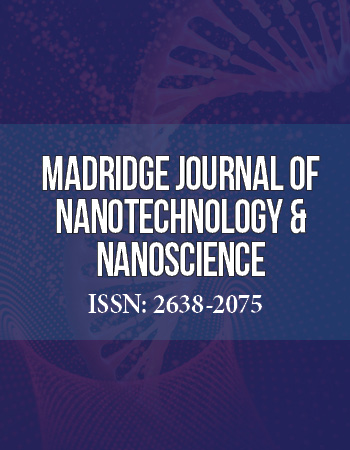International Nanotechnology Conference & Expo
April 04-06, 2016 | Baltimore, USA
Deconvoluting hepatic processing of fibrillar nanocarbon
Department of Radiology, Memorial Sloan-Kettering Cancer Center, USA
Fibrillar nanocarbon presents many appealing characteristics as a component for designing drug delivery platforms. Differential degrees of accretion and clearance from critical tissues directly correlate with the chemical and physical modifications of fibrillar nanocarbon. The liver is an organ in which most particulate drugs accumulate and therefore of critical importance in regard to understanding nanocarbon pharmacology and toxicity. While the pharmacokinetic profile of nanocarbon has been described down to the organ level, there has been little data reported beyond that point. Here we provide a complete account of hepatic cytodistribution, receptor-mediated endocytosis, cellular trafficking, and biliary elimination of covalently functionalized single walled carbon nanotubes. This soluble nanomaterial localized in the liver sinusoids, and unexpectedly, specifically in the discontinuous sinusoidal endothelial cell population. Interestingly, there was little to no accumulation in hepatocytes, Kupffer cells, bile duct epithelium, or the continuous vascular endothelial lining. The accumulation by these sinusoidal cells was mediated by a pair of specialized scavenger receptors. Other tissues that express these same receptors were also found to accumulate nanotubes. A fraction of the nanocarbon that was not endocytosed by the hepatic sinusoidal scavenger cells was found in the bile destined for hepatobiliary elimination. This surprising cytodistribution profile and biliary mode of clearance, in conjunction with the rapid renal elimination via glomerular filtration that we showed previously, suggested that drug-based applications of fibrillar nanocarbon will be feasible in humans.
Biography:
Michael R. McDevitt, Ph.D. is an Associate Attending in the Department of Radiology at Memorial Hospital, an Associate Laboratory Member in the Sloan-Kettering Institute, and anAssistant Professor in the Department of Medicine at Weill Cornell Medical College. He specializes in the development of targeted drug therapies. He has developed clinical radioimmunotherapeutic drugs that combine antibodies and radionuclides for cancer therapeutic and diagnostic applications. Several of these drugs have reached human clinical trials, including the first targeted alpha particle therapies and alpha particle emitting radionuclide generators. For the past decade he has been investigating the pharmacology of fibrillar nanocarbon. After receiving his Ph.D. degree in Chemistry from Case Western Reserve University in 1985, Dr. McDevitt worked in biotechnology and joined MSKCC in 1995. He is also a member of Memorial Sloan-Ketteringʼs Brain Tumor Center and Center for Molecular Imaging & Nanotechnology. Dr. McDevitt has published 75 papers, reviews, or chapters in these fields.


